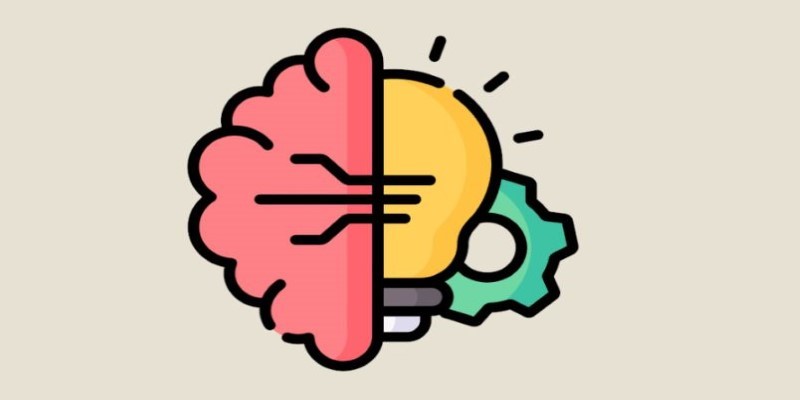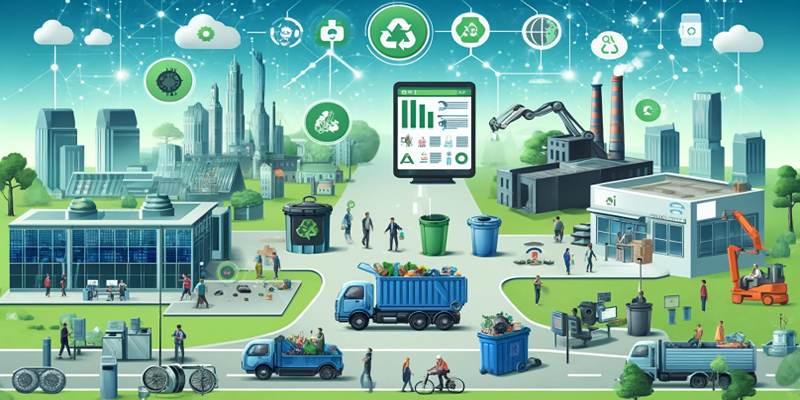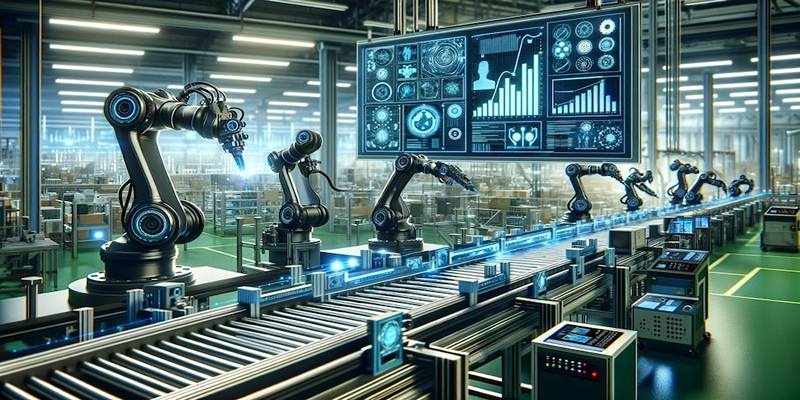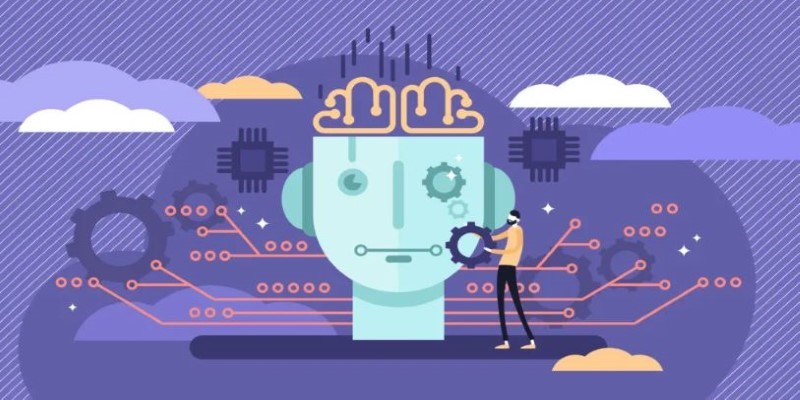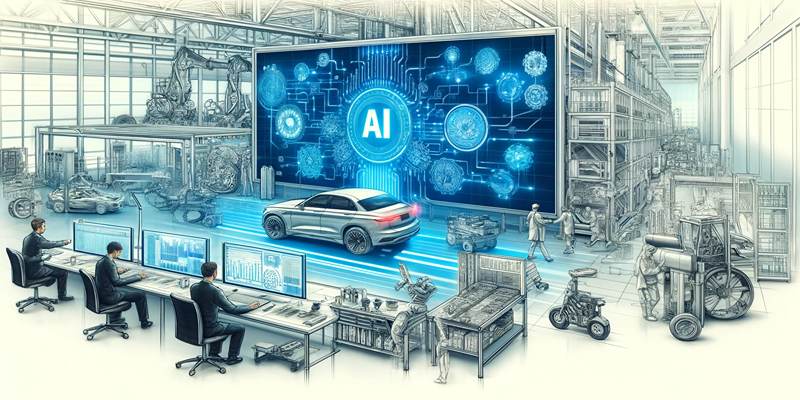Since employment, millions of people, and food production, as well as economic stability, agriculture is the primary economic activity in Africa. However, some of the challenges that put an obstacle to productivity include fluctuating weather conditions, poor farming practices, and interruption of the supply chain. It is the incorporation of artificial intelligence in the agricultural sector to bring forth smart farming, data analysis, and automation. In this article, complex technologies such as precision farming and advanced technologies such as artificial intelligence in supply chain management are unveiled as the new developments that are transforming the agricultural sector to be more sustainable and inclusive. The application of AI in the African agri-food system has the opportunity to impact the farmer, the agriculture business, and the consumer in the continent.

AI in Agriculture: A Game-Changer for Africa
Enhancing Productivity with Smart Farming Technology
This is the story of the application of smart farming technology, which is being adopted in African agriculture with the help of AI to maximize resources. Farmers can also use sensors and drones that are powered by artificial intelligence to survey the health of soils, water, and crop growth in real time. These tools enable one to minimize wastage and enhance the yield quality. For instance, the irrigation systems enhanced by artificial intelligence guarantee crops get the right quantity of water required to allow water conservation while increasing yields. With the help of integrating artificial intelligence into farming, such time-consuming processes as planting and harvesting, the farmer will be able to devote more time to decision-making and strategic planning. Therefore, smallholder farmers, who are the main producers and suppliers of food in Africa, can increase their productivity and income security.
AI-Powered Precision Agriculture for Efficient Land Use
Automated agriculture employs the use of artificial intelligence to feed large data to farmers to enhance the management of crops. Crop loss due to climate variability can be minimized through the use of satellite imagery and weather data in developing AI models for planting and harvesting times. It also means that other associated diseases or pest infections to crops can also be identified and treated early through minimal use of agricultural chemicals like pesticides. In Kenya and Nigeria, for instance, technologies such as precision farming are helping farmers to use the available land in the best way to feed the growing population with limited resources. This is helpful in attaining food security and food sustainability in Africa, as we have seen it.
The Impact of AI on African Agri-Food Systems
AI-Driven Supply Chain Optimization in Agriculture
Among the major challenges faced within African agriculture is the problem of supply chains, which leads to food losses and supply problems. AI is finding its application in agricultural supply chain solutions by optimizing the supply chain and eliminating the gaps that exist in the system. Through the use of artificial intelligence, producers are able to link with consumers directly, thus fetching good prices for their produce and timely delivery. Using predictive modeling, agribusinesses can forecast the demand and prevent overstocking and overbuying or the opposite extreme of stockouts. In Rwanda, various supply chain management solutions aided by AI technology have enabled farmers to sell locally produced crops at reasonable market prices and, at the same time, reduced increased post-harvest losses.
Addressing Food Security with AI Innovations
There is no doubt that AI is being used to address food insecurity issues in Africa with great significance. It is through the analysis of climate patterns that machine learning algorithms are able to determine when droughts, floods, and other calamities that affect agriculture are likely to occur, hence enabling farmers to prepare for them in advance. Mobile applications developed under the use of AI offer smallholder farmers immediate solutions on soil issues, pest and diseases, and crop succession. In Ethiopia, the researchers have employed AI to predict food deficits, which has been helpful for asset distribution among the government departments. Embedding artificial intelligence in the agricultural plan of each country in Africa will go a long way in creating favorable food systems that are sustainable, equitable, and inclusive.

Challenges and Opportunities in AI Adoption
Barriers to Implementing Smart Farming Technology
There are some barriers that have slowed down the integration of AI in agriculture across the African region. The high cost of implementing smart farming technology in terms of artificial intelligence equipment and supporting structures are some of the problems facing smallholder farmers. Internet connection is also scarce in the rural areas, thus limiting access to AI applications in agriculture. Third, there is the problem of lack of technical know-how among farmers to handle the AI-based systems. Both government and private stakeholders should invest their resources in finance and infrastructure to support the training programs. Such barriers indicate that more farmers can harness the potential of AI to enhance agricultural innovations and enhance African agri-food systems.
Bridging the AI Knowledge Gap Among Farmers
There is limited awareness among farmers when it comes to the use of AI. It has been realized that most of the small-scale farmers have little or no knowledge about the use of AI in their farming activities. To close this gap, there need to be campaigns of training and education that help in conveying simple ideas on what AI is and how it may be applied. This is an important vehicle through which farmers can be enlightened on how to incorporate AI in their farming practices. The training programs in Ghana have ensured that farmers get the best from their farms through the application of artificial intelligence recommendations. Thus, reaching AI literacy will help farmers to become the makers of decisions based on the data provided by smart farming technologies.
Conclusion
AI is revolutionizing agriculture in Africa, offering innovative solutions to long-standing challenges. From smart farming technology to AI-driven supply chain optimization, these advancements are enhancing productivity, improving food security, and creating sustainable farming practices. However, widespread AI adoption requires addressing barriers such as cost, connectivity, and education. By investing in AI literacy, infrastructure, and farmer support programs, Africa can be developed.
